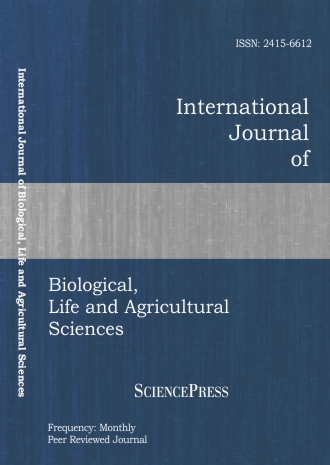
Scholarly
Volume:6, Issue: 9, 2012 Page No: 806 - 808
International Journal of Biological, Life and Agricultural Sciences
ISSN: 2415-6612
1520 Downloads
Leaf Chlorophyll of Corn, Sweet basil and Borage under Intercropping System in Weed Interference
Intercropping is one of the sustainable agricultural factors. The SPAD meter can be used to predict nitrogen index reliably, it may also be a useful tool for assessing the relative impact of weeds on crops. In order to study the effect of weeds on SPAD in corn (Zea mays L.), sweet basil (Ocimum basilicum L.) and borage (Borago officinalis L.) in intercropping system, a factorial experiment was conducted in three replications in 2011. Experimental factors were included intercropping of corn with sweet basil and borage in different ratios (100:0, 75:25, 50:50, 25:75 and 0:100 corn: borage or sweet basil) and weed infestation (weed control and weed interference). The results showed that intercropping of corn with sweet basil and borage increased the SPAD value of corn compare to monoculture in weed interference condition. Sweet basil SPAD value in weed control treatments (43.66) was more than weed interference treatments (40.17). Corn could increase the borage SPAD value compare to monoculture in weed interference treatments.
Keywords:
References:
[1] L. Bedoussac, and E. Justes. Dynamic analysis of competition and